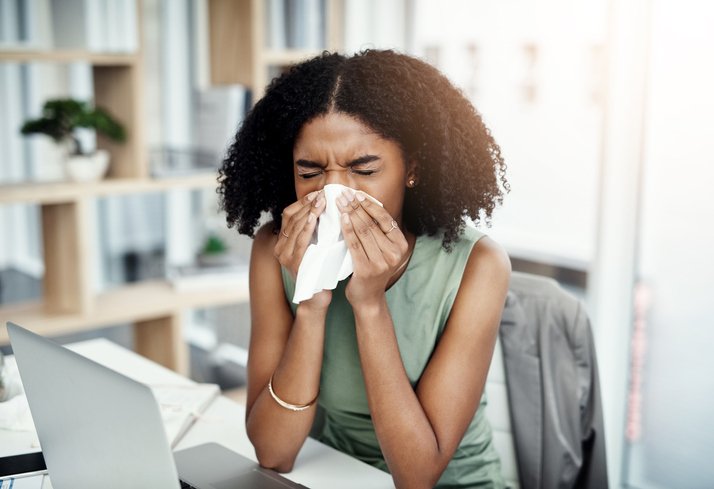Find The Right System To Keep Your Indoor Air Quality High
As the sun shines brighter and blooming flowers come into view, runny noses and itchy eyes become more common for allergy sufferers. This allergy season, make sure your home is ready to protect you and your family from the copious amounts of pollen that a Georgia spring has to offer. The professionals at our HVAC company are here to recommend some home systems that can improve your indoor air quality and help get those allergies under control!
Need help deciding which home system is the right one for your home? Contact us today and schedule an appointment with one of our air conditioning maintenance specialists!

Air Purifiers
Air purifiers are used to remove allergens and other contaminants from the air that runs through your home. While it is the most popular type of purifier, a portable air purifier isn’t as effective as a whole-house unit for managing allergy symptoms. These devices are installed into residential HVAC units, typically at the air intake point that helps to purify the air that runs through your home.
Ventilators
Springtime may seem like the perfect chance to open up some windows to get the air flowing through your home, but it also gives allergens an open invitation to come inside. Instead of opening your doors, or in this case windows, we recommend installing an energy recovery ventilator that will work to improve your home’s indoor air quality. A ventilator is a device that will help improve indoor air quality by recirculating the air so that it doesn’t become over-encumbered with allergens.
Dehumidifiers
For allergy sufferers, a moist environment can be a perfect habitat for all kinds of irritants that can intensify allergy symptoms. Investing in a humidifier can help reduce indoor humidity, but a portable dehumidifier is often underpowered and is incapable of delivering sustained allergy relief. We recommend a whole-house dehumidifier that can properly manage your allergy symptoms.
High-Efficiency Air Filters
Air filters are one of the first lines of defense against air pollutants, so we recommend investing in an air filter with a high minimum efficiency reporting value (MERV) rating. A filer’s MERV rating indicates the effectiveness at trapping a range of airborne particles and allergens, and the higher this rating means the more airborne particles that it will trap. For those with more severe allergy symptoms, we recommend a High-Energy Particulate Air Filter (HEPA) that has a MERV rating of 17-20. These can eliminate about 99 percent of allergy-inducing contaminants in the home.